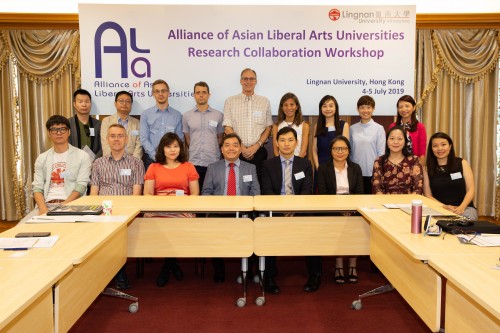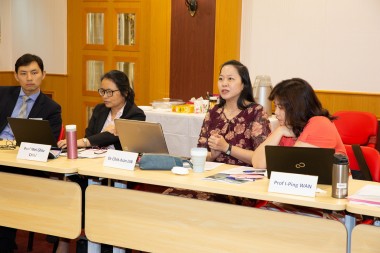Alliance of Asian Liberal Arts Universities (AALAU) Research Collaboration Workshop
To promote regional and international research collaboration among partnering institutions of the Alliance of Asian Liberal Arts Universities (AALAU), the Office of Research Support of Lingnan University organised the Research Collaboration Workshop on 4 to 5 July 2019. The event addressed issues surrounding Comparative Asian Studies, the central theme of research collaboration. Under this overarching theme, a few research workshops were held, with each focusing on a given subject, namely: (1) Liberal Arts Education: Asian and Comparative Perspectives; (2) Comparative Culture and Literature; (3) Ageing Studies in Asian Countries; and (4) Smart Cities, Digital Culture and Urban Governance. Academics from Duke Kunshan University, China, and National Chengchi University, Taiwan, came to Lingnan University for the event. The Research Collaboration Workshop provided a great platform for Lingnan’s academics to explore and develop research projects, publication plans and learning enhancement programmes designed for research students.
About The Alliance of Asian Liberal Arts Universities (AALAU)
The Alliance of Asian Liberal Arts Universities (AALAU), established in November 2017, is a network of respectable liberal arts universities in Asia.
All AALAU members share common values, a global vision and a commitment to grooming future leaders. Central to these values is a belief in the importance of liberal arts education in the innovation-driven era. Liberal arts education emphasises the importance of having a wide body of knowledge, critical thinking, creativity, an ability to deal with novel problems and a love for learning. We believe liberal arts education is conducive to the training of future leaders in a rapidly changing world. Members of the Alliance, including major liberal arts universities in Asia, deal with rapid changes in the education landscape by identifying future challenges, sharing the best practices, and collaborating among themselves and with others. We have now 24 partnering institutions from South Korea, Japan, India, Thailand, Mainland China, Taiwan, and Hong Kong.



